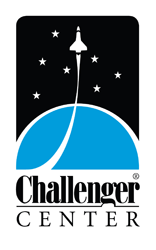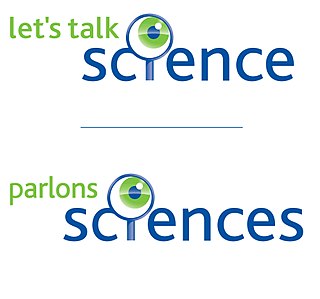Related Research Articles

Jet Propulsion Laboratory (JPL) is a federally funded research and development center in the City of Pasadena, California, United States. Founded in 1936 by Caltech researchers, the laboratory is now owned and sponsored by the National Aeronautics and Space Administration (NASA) and administrated and managed by the California Institute of Technology.

The Space Telescope Science Institute (STScI) is the science operations center for the Hubble Space Telescope (HST), science operations and mission operations center for the James Webb Space Telescope (JWST), and science operations center for the Nancy Grace Roman Space Telescope. STScI was established in 1981 as a community-based science center that is operated for NASA by the Association of Universities for Research in Astronomy (AURA). STScI's offices are located on the Johns Hopkins University Homewood Campus and in the Rotunda building in Baltimore, Maryland.

Upward Bound is a federally funded educational program within the United States. The program is one of a cluster of programs now referred to as TRiO, all of which owe their existence to the federal Economic Opportunity Act of 1964 and the Higher Education Act of 1965. Upward Bound programs are implemented and monitored by the United States Department of Education. The goal of Upward Bound is to provide certain categories of high school students better opportunities for attending college. The categories of greatest concern are those with low income, those with parents who did not attend college, and those living in rural areas. The program works through individual grants, each of which covers a restricted geographic area and provides services to approximately 59,000 students annually. The program focuses on academic and nonacademic resources and activities like visits to museums or tutoring for school work. Students are encouraged to be involved in Upward Bound for the entire academic year and a 6-week long summer program. Many students who are also granted access into the Upward Bound program are labeled as first generation college students, who are students that are the first in their family to attend college. This program is set in place for students who come from low income families as well as underrepresented schools and gives them an opportunity to excel in college.
The Lunar and Planetary Institute (LPI) is a scientific research institute dedicated to study of the solar system, its formation, evolution, and current state. The Institute is part of the Universities Space Research Association (USRA) and is supported by the Science Mission Directorate of the National Aeronautics and Space Administration (NASA). Located at 3600 Bay Area Boulevard in Houston, Texas, the LPI maintains an extensive collection of lunar and planetary data, carries out education and public outreach programs, and offers meeting coordination and publishing services. The LPI sponsors and organizes several workshops and conferences throughout the year, including the Lunar and Planetary Science Conference (LPSC) held in March in the Houston area.

The Space Generation Advisory Council (SGAC), in support of the United Nations Programme on Space Applications, is a non-governmental organization and professional network that "aims to bring the views of students and young space professionals to the United Nations (UN), space industry, and other organizations." SGAC has the clear purpose of connecting, inspiring, engaging, and advocating; it works to raise awareness among the next generation of space professionals on a global scale. The SGAC network currently represents over 25,000 members across 165 countries – the world's largest network of students, young professionals, and alumni in the space industry. SGAC operates in the six official languages of the United Nations, though the official working language is English.

The Great Lakes Science Center is a museum and educational facility in downtown Cleveland, Ohio, United States. Many of the exhibits document the features of the natural environment in the Great Lakes region of the United States. The facility includes signature (permanent) and traveling exhibits, meeting space, a cafe, and an IMAX Dome theater.

Science, technology, engineering, and mathematics (STEM) is an umbrella term used to group together the distinct but related technical disciplines of science, technology, engineering, and mathematics. The term is typically used in the context of education policy or curriculum choices in schools. It has implications for workforce development, national security concerns and immigration policy, with regard to admitting foreign students and tech workers.
Science Week refers to series of science-related events for the general public which are held in a specific countries during a designated week of the year. The aim of such science weeks is to engage and inspire people of all ages with science, engineering and technology.

The NASA Academy is NASA's premiere leadership training program for undergraduate and graduate students. Since its founding in 1993, the NASA Academy has brought together future leaders of the aerospace industry and exposed them to the inner workings of NASA, academia, and industry. The Academy consists of a ten-week summer program hosted by a participating NASA center. Currently there are academies at Langley Research Center, Ames Research Center, Marshall Space Flight Center and Glenn Research Center. Goddard Space Flight Center and Dryden Flight Research Center previously hosted NASA Academies, as well.

NASA's Independent Verification & Validation (IV&V) Program was established in 1993 as part of an agency-wide strategy to provide the highest achievable levels of safety and cost-effectiveness for mission critical software. NASA's IV&V Program was founded under the NASA Office of Safety and Mission Assurance (OSMA) as a direct result of recommendations made by the National Research Council (NRC) and the Report of the Presidential Commission on the Space Shuttle Challenger disaster. Since then, NASA's IV&V Program has experienced growth in personnel, projects, capabilities, and accomplishments. NASA IV&V efforts have contributed to NASA's improved safety record since the program's inception. Today, Independent Verification and Validation (IV&V) is an Agency-level function, delegated from OSMA to Goddard Space Flight Center (GSFC) and managed by NASA IV&V. NASA's IV&V Program's primary business, software IV&V, is sponsored by OSMA as a software assurance technology. Having been reassigned as GSFC, NASA IV&V is Code 180.

Challenger Center for Space Science Education is a United States 501(c)(3) non-profit organization headquartered in Washington, DC. It was founded in 1986 by the families of the astronauts who died in the Space Shuttle Challenger disaster on January 28, 1986.

The United World College Costa Rica, located in the Santa Ana suburb of San José, is the 11th college in the UWC movement and the first to offer instruction in both English and Spanish. The College, formerly the "Colegio Internacional SOS Hermann Gmeiner," re-opened as a United World College in August 2006, and graduated its first UWC-admitted applicants in 2008.
The Kentucky Governor's Scholars Program (GSP) is a program to attempt to keep "the brightest" rising high school seniors inside the state of Kentucky. The program is a five-week program over the summer for students between their junior and senior years of high school. It is held at three different colleges across the commonwealth of Kentucky every year. The program is highly competitive with about a 50% acceptance rate. In order to get accepted, prospective scholars must have high academic achievement, including standardized test scores, and be active in the community. The application prompts students to list their academic, extracurricular, and volunteer achievements. In addition, students must write an essay to be accepted into the program. The program itself consists of various classes and other school activities. The 1,000 rising seniors that are selected yearly are eligible to receive scholarships to any in-state public university upon completing the program. This incentive is an effort to keep the most intelligent of the state, in Kentucky.
The America Creating Opportunities to Meaningfully Promote Excellence in Technology, Education, and Science Act of 2007, also known as the America COMPETES Act, was authored by Bart Gordon and signed into law on August 9, 2007, by President George W. Bush. The act aimed to invest in innovation through research and development and improve the competitiveness of the United States.
A pre-STEM program is a course of study at any two-year college that prepares a student to transfer to a four-year school to earn a bachelor's degree in a STEM field.

For Inspiration and Recognition of Science and Technology (FIRST) is an international youth organization that operates the FIRST Robotics Competition, FIRST LEGO League Challenge, FIRST LEGO League Explore, FIRST LEGO League Discover, and FIRST Tech Challenge competitions. Founded by Dean Kamen and Woodie Flowers in 1989, its expressed goal is to develop ways to inspire students in engineering and technology fields. Its philosophy is expressed by the organization as Coopertition and Gracious Professionalism. FIRST also operates FIRST Place, a research facility at FIRST Headquarters in Manchester, New Hampshire, where it holds educational programs and day camps for students and teachers.
Science Expo was a Canadian national student run non-profit organization that connected high-achieving youth to innovators and STEM opportunities. In 2017, they merged with another Canadian non-profit, the Foundation for Student Science and Technology (FSST). They exist to bridge the gap between the two parties and provide opportunities to excel which features youth-to-youth interactions to help them reach their potential. It is the place where ambitious youth can be at the forefront of innovation, and where young people have the chance to enrich their skills, be empowered to learn and grow, and be inspired to explore their passions and dreams.
The Center for the Advancement of Science in Space (CASIS), a non-profit organization, is the manager of the International Space Station United States National Laboratory, a US government-funded laboratory with principal research facilities located in the United States Orbital Segment of the International Space Station (ISS).

The INSPIRE Women Act was introduced in the United States House of Representatives on January 5, 2017 by Representative Barbara Comstock of Virginia. The bill compels the director of the National Aeronautics and Space Administration (NASA) to encourage women and girls to pursue an education in the science, technology, engineering, and mathematics (STEM) fields.

Let’s Talk Science is a registered Canadian charitable organization focused on education and skills development for children and youth in Canada through science, technology, engineering and math (STEM) based programs. Founded in London, Ontario in 1993, the head office remains in London, ON and there are two regional offices in Calgary, AB and St. John’s, NL. Dr. Bonnie Schmidt is the president and founder of Let's Talk Science.
References
- ↑ "INSPIRE Students". NASA . Archived from the original on 2021-06-12.
- ↑ IEEE-USA Today's Engineer
- ↑ "NASA - INSPIRE Frequently Asked Questions".
- ↑ "NASA - INSPIRE Students Speak Out".